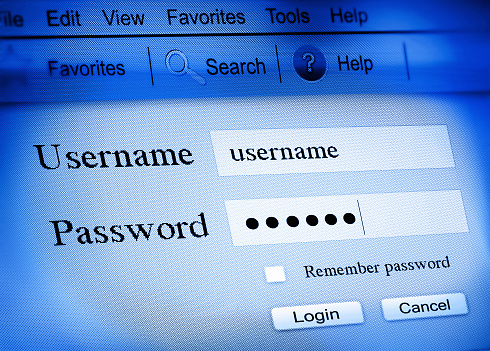-
Connect With Your Ottawa IT Service Company at (613) 828-1384
Connect With Your Ottawa IT Service Company at (613) 828-1384
One way cybersecurity can be improved to a great degree is by creating strong, hard-to-decipher passwords that are difficult for hackers to discern. These days, cybercriminals are highly motivated, and can get at simply hashed, basic, alpha-numeric passwords using various methods. There’s good advice all over the Net on the creation and maintaining of passwords that can withstand hacks and exploits that target sensitive data through the decryption of passwords. Shyam Gollakota and his colleagues at the University of Washington have figured out an ingenious way to take the air out of short-range communication (If this wireless communication contains sensitive information, like a password): Send the signal through the user’s body.

Short of re-routing invisible beams through the body, Cornel University gives this advice in their NetID department for creating stronger, more hacker-proof passwords:
For Better, Stronger Passwords
Experts recommend that your password be a complex sequence of letters, numbers, and symbols, but also one you can ultimately memorize (if you have the cognitive skills), as difficult as it may seem at first. They remind us that quite often, even a determined cybercriminal can be thwarted by a well-encrypted, complex password.
Also advised by most authorities on cybersecurity is that you don’t write passwords down anywhere conspicuous, and don’t share them with anyone. And, if you do write it down somewhere, make sure it’s kept in a place where no one can find it, for example on a post-it note stuck inside a secret pocket or place – someplace on your person, not in your desk or stuck to your monitor. And, as hard as it may be to do this, experts also advise having a separate encrypted-phrase password for each account log-in you navigate throughout your day. There are also secure password generators that can create new passwords endlessly for you.
What Cybersecurity Pundits Are Saying
Live Science, speaking about the “Heartbleed bug” that infected perhaps millions of computers in 2014, says, “To create a strong password that can stand up to hackers and malicious software, experts recommend using at least 12 characters, selected at random from all the numbers, letters and symbols on the keyboard.”
Richard Boyd, a senior research scientist at the Georgia Tech Research Institute in Atlanta has this to say about creating strong passwords: “If eight characters is all you use, and if you restrict your characters to only alphabetic letters, it can be cracked in minutes. I would say a password should be as long as you can reasonably remember, but 10 to 12 at least.”
Hackers use different techniques to “solve” passwords and gain unauthorized access to databases. One commonly-used decoding trick can quickly guess commonly-used types of passwords, such as pet’s names, schools, hometowns, etc. This demonstrates how we must maintain deeper complexity and stronger cybersecurity with better passwords.
One suggestion is inventing a coded language for passwords, e.g. cryptograms, or ciphers. For example, replacing every letter in the alphabet with a number or symbol, and randomly replacing letters and numbers with symbols and other characters. You can also use such encryption with highly personalized remembrances, such as “Mary S. Married in 2010,” which would then become the 18-character passcode, “M$r0SkaRR23diN2!q0”. Another method is to take any easy-to-remember phrase like “Jack and Jill went up the hill,” take the first letter of each word (J-A-J-W-U-T-H), and create an encrypted password from that.
Get Expert Password Security Advice
If you have further questions regarding creating better passwords and cybersecurity, Fuelled Networks is the leader in providing IT consulting and management in Ottawa. Contact one of our expert IT staff at (613) 828-1384 or send us an email at info@fuellednetworks.com today, and we will help you with any of your questions, concerns, and needs.